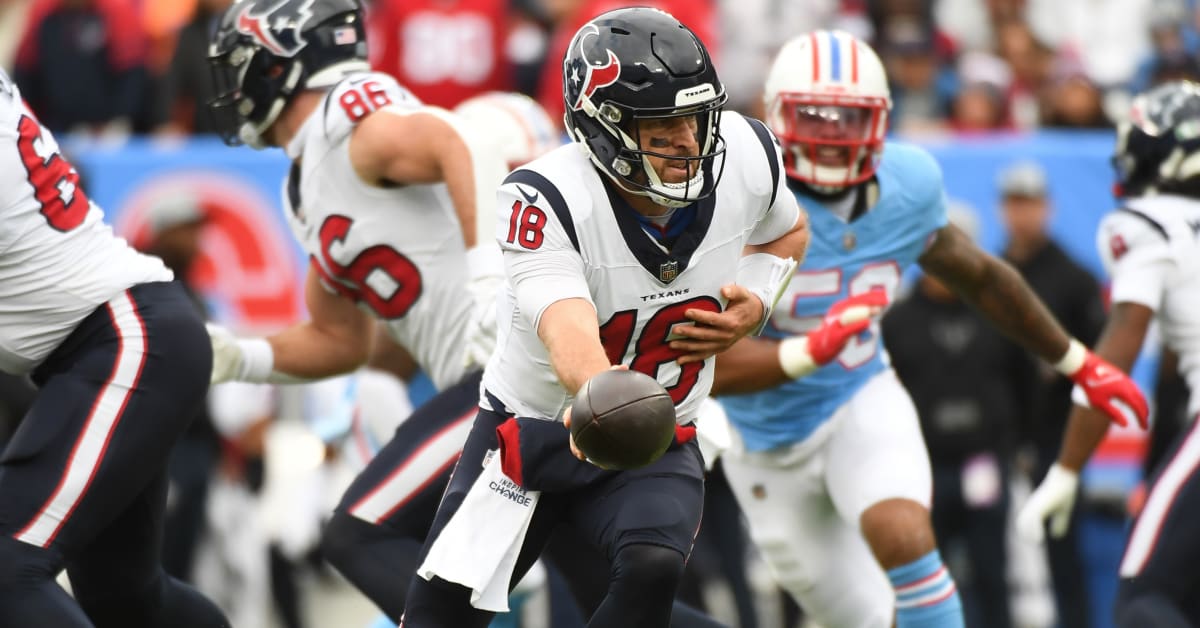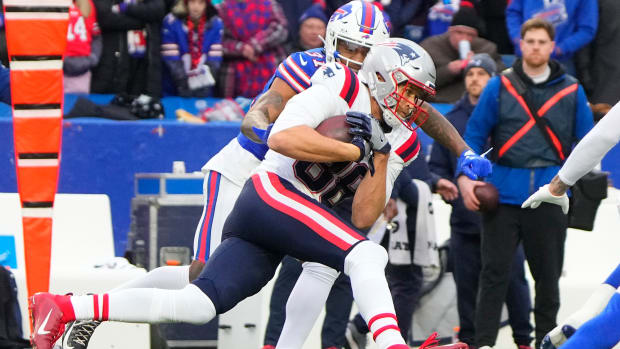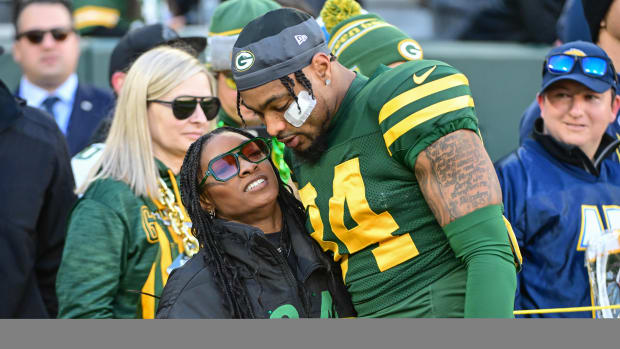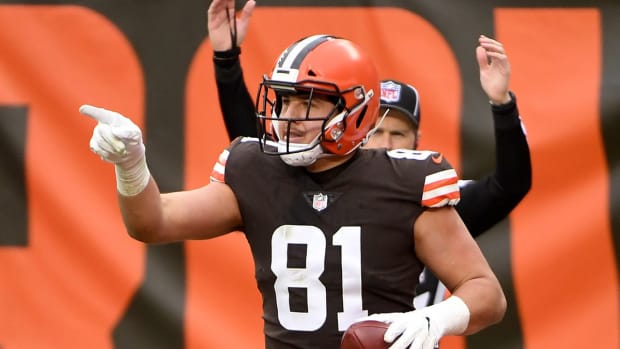
NFL Week 15 Coaching Decisions: Texans Embrace Game Manager QB, Vikings Botch Tush Push
Cam Newton made many people angry last week by referring to Tua Tagovailoa, Dak Prescott and Brock Purdy as game managers. He also took it a step further by labeling Tom Brady as one.
I’m not here to completely defend Newton—he does know what he’s talking about as a former league MVP—but he’s not wrong when he mentioned that being called a game manager is not a slight to quarterbacks.
There’s nothing wrong with protecting the football and efficiently running the scheme and plays called on the field. Those are attributes that are needed to become a successful quarterback in the NFL. Elite skills won’t get a quarterback far if they can’t be trusted to protect the ball or make the right reads.
So, yes, Brady was the ultimate game manager, but he was also a game changer. He wasn’t athletic, but he was a cerebral assassin, and that advantage won him many games in New England and Tampa Bay.
I’m bringing all this up because Case Keenum played the role of game manager last week. The veteran signal-caller helped the Texans defeat the Titans in overtime, 19–16, while filling in for the injured C.J. Stroud. Keenum fits more of the stereotypical profile for game managers, but again, nothing wrong with that. Pro Bowlers and trusted backups can be game managers.

Keenum filled in admirably for Stroud and got the win by relying on Houston’s run game and defense.
Christopher Hanewinckel/USA TODAY Sports
Josh Allen also played the role of game manager last week, and it helped the Bills win 31–10 against the Cowboys. Allen, one of the best game changers in the league, said he felt like the one kid in school who didn’t help with the group project and still got an A on the assignment. But more on the Bills’ victory in a bit.
Texans coach DeMeco Ryans and offensive coordinator Bobby Slowik had the right game plan to guide Houston to victory without the soon-to-be Offensive Rookie of the Year. The upset win kept Houston in the mix for not only a wild-card spot but for the AFC South crown.
Slowik leaned on running back Devin Singletary most of the game to make life easier on Keenum, who was without wide receivers Nico Collins and Tank Dell. Keenum, however, threw a costly pick-six in the second quarter to dig the Texans into a 13–0 deficit. But Ryans’s defense stepped up by forcing the Titans to punt eight times and added an interception to give the team an opportunity to rally.
Keenum did his part with a sensational fourth quarter, as he completed critical throws to tight end Dalton Schultz and wide receiver Noah Brown. The Texans had a 10-play, 79-yard touchdown drive to tie the game late in the fourth quarter.
It was a complete effort by the Texans, one that made life easier for Keenum. And there’s nothing wrong with that.
Here are other coaching performances and calls we liked from Week 15 in the NFL. And a few that we didn’t like so much.
Calls we liked
Bills lean on running game vs. Cowboys: Allen went 7-of-15 for 94 yards against the Cowboys. That type of statline often meant something went horribly wrong for the Bills. But that’s not the case these days in Buffalo with Joe Brady’s run-heavy scheme.
Allen hasn’t been forced to play hero-ball during the Bills’ back-to-back wins against the Chiefs and Cowboys. Brady, who was elevated to interim offensive coordinator after the team fired Ken Dorsey, has made life easier for Allen by making James Cook a focal point of the offense.
Brady has unleashed Cook’s skills as a ballcarrier and pass-catcher, allowing the running back to rack up 362 all-purpose yards and three total touchdowns during this two-game winning streak. If Cook continues to play this well, the Bills might find a way into the postseason and possibly come out of the AFC to play in the Super Bowl in Las Vegas.
Bucs put the game away on fourth down: Todd Bowles has developed a reputation of rarely going for it on fourth down. But he had a closer’s mentality during the Buccaneers’ 34–20 victory against the Packers.
Bowles could have easily punted, but he decided not to give Green Bay any hope with 3:25 left in regulation. Tampa Bay gave the ball to running back Rachaad White for a three-yard run on fourth-and-2 from the Packers’ 41-yard line. The Buccaneers eventually killed the entire clock after a few more runs from White, who recorded 89 rushing yards en route to a third consecutive victory for Tampa Bay.
These red-hot Buccaneers are different, evident by a productive running game and an aggressive approach in the final minutes.

O’Connell repeated the same failed play with a chance to give the Vikings the upper hand in overtime.
Katie Stratman/USA TODAY Sports
Calls we questioned
Vikings’ poor Tush Push execution: Kevin O’Connell made the strange decision to call back-to-back quarterback sneaks with 5' 8", 181-pound Brandon Powell doing the bulk of the pushing behind backup Nick Mullens.
The Vikings were unsuccessful on both plays, derailing their drive on the Bengals’ 42-yard line in overtime. All the Vikings needed was a field goal to win the game, but O’Connell refused to change out of the 11 personnel (three wide receivers) and add a bigger player to provide the needed push, such as a tight end or a fullback.
O’Connell could have also called a run play for Ty Chandler, who recorded 132 yards vs. the Bengals.
Steelers get conservative down double digits: Things have gotten so bad offensively in Pittsburgh that Mike Tomlin might be losing faith in his struggling unit.
With a 24–13 deficit, Tomlin passed on kicking a 50-yard field goal in an indoor venue against the Colts. He could have also opted to go for it on fourth-and-14 from the Indianapolis 39-yard line with 3:14 left in the third quarter. That wouldn’t have been easy to convert, but it could have at least provided a spark for the offense.
Instead, the Steelers punted and didn’t get the ball back until 9:17 left in regulation. The Colts ran the ball 13 consecutive times before adding a field goal on a drive that killed 8:57 off the clock.









































